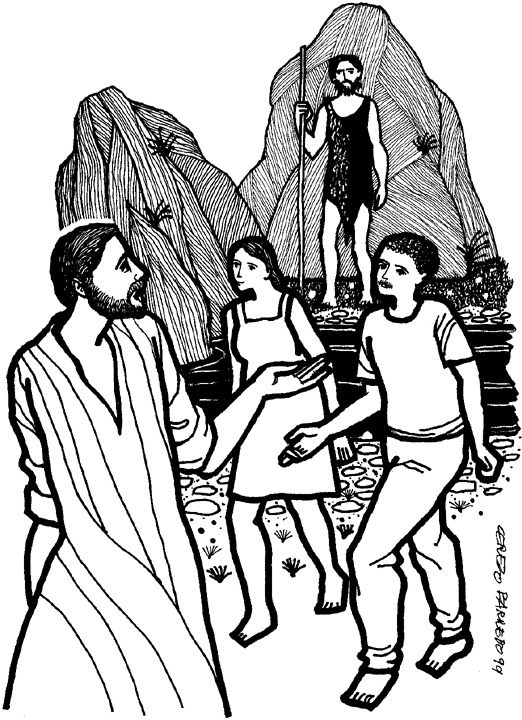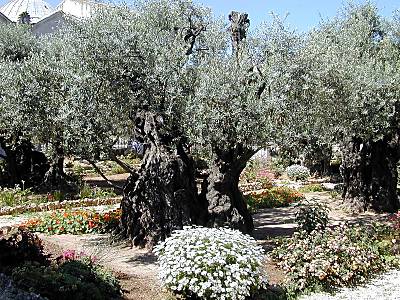The Bible Lessons:
Isaiah 9:1-4
Psalm 27:1, 4-9
1 Corinthians 1:10-18
Matthew 4:12-23
General Comments:
1. As we come to the second to last Sunday of the Epiphany season, the lessons for this Sunday deal with common Epiphany themes: the light of God, revealing His character and purposes; sharing the saving Good News of Jesus Christ; and God's desire for all people to follow Christ and be saved from sin and death.
2. These themes will be drawn together completely next week, when we celebrate the Transfiguration of Our Lord, just before the start of the Lenten season on February 3.
A Few Comments on the Texts:
1. Isaiah 9:1-4: Few would dispute that this passage was composed in about 733BC by the original Isaiah. It was a frightening time for God's people, Judah, the southern kingdom, all that remained of greater Israel, the rest of which had already been conquered.
Isaiah pictures it as a dark time when the people of God looked for the light of hope. Northern neighbors threatened their nation. King Ahaz considered forming an alliance with the Assyrian Empire in order to get the help needed to fight off the probable invaders. But that too, was a course fraught with danger, both for Ahaz and for his country.
2. Isaiah foresees a ray of hope. He says that God will deliver Judah. He conveys this prophecy of hope in a poem which extends beyond our appointed lesson to include Isaiah 9:5-7:
For all the boots of the tramping warriors and all the garments rolled in blood shall be burned as fuel for the fire. For a child has been born for us, a son given to us; authority rests upon his shoulders; and he is named Wonderful Counselor, Mighty God, Everlasting Father, Prince of Peace. His authority shall grow continually, and there shall be endless peace for the throne of David and his kingdom. He will establish and uphold it with justice and with righteousness from this time onward and forevermore. The zeal of the Lord of hosts will do this.Most scholars today tell us that these words most immediately referred to a king who would stand up to potential invaders and be the channel through whom God's deliverance would come to His people. But many others would insist that the words also apply to a future king, Jesus.
3. In verse 1, we're told that the awaited king will come from "Galilee of the nations." This, of course, refers to the region near the Sea of Galilee. Although part of Judah--also sometimes called Judea, many of God's people regarded the people from this area suspiciously and disdainfully.
That's because the region was also home to many non-Jews. The term for non-Jews was Gentiles, ethnoi in the original Greek of the New Testament. It means "the nations."
The jarring prophecy from Isaiah then, is that Judah's great deliverer would come from a suspect region of Judah. And in fact, there were Gentiles and numerous other suspicious characters on the family trees of Jesus' earthly parents, Mary and Joseph.
The area where Jesus would grow up some seven-hundred years after Isaiah wrote the words of our first lesson, was far more cosmopolitan than other parts of Judah. Those in the fishing trade would have, by necessity, been conversant in several languages. So would the people of tiny Nazareth, which was located not far from major trade routes linking the East with Africa and southern Europe.
4. Psalm 27:1, 4-9: The light motif is seen in this lesson, too. We who live in the First World, where we take electric light so for granted, sometimes forget how dark the darkness can be. It also causes us to forget how brilliantly illuminating the light of Sun, stars, and Moon can be. If you've ever been without light in a remote area, you know both how frightening darkness can be and how welcome the light is.
For people in the ancient world, darkness was foreboding. This is why people preferred to be in the safe confines of walled cities at night.
But the psalmist says that there is brighter light and a firmer stronghold that we can have: God Himself.
Like Paul in the New Testament, David would say, "If God is for us, who is against us?" (Romans 8:31)
These aren't triumphal, self-aggrandizing declarations that David is making. Instead, they're the statements of a grateful, undeserving sinner thankful for the amazing grace of God!
5. 1 Corinthians 1:10-18: As I mentioned in the pass at last week's lessons, there were tons of problems in the church that existed in the first-century Greek city of Corinth. Here, the first century preacher and evangelist Paul, who started the church, deals with one of the problems: factionalism. As Paul writes in verse 12:
...each of you says, “I belong to Paul,” or “I belong to Apollos,” or “I belong to Cephas,” or “I belong to Christ. [Cephas is the Latin version of the name, Petros, Peter]But Paul condemns that sort of thinking. Neither Apollos, Cephas, nor Paul was the sinless king who died on a cross for them. That was Jesus!
Many divided churches can trace their fractured lives to the ungodly penchant for memorializing Christians rather than following the living Christ. Paul would have none of that! Even if one of those the Corinthian Christians memorialized was him.
6. One of the things I always smile over in this text is the passage in which Paul wrestles to remember who he did and didn't baptize:
I thank God that I baptized none of you except Crispus and Gaius, so that no one can say that you were baptized in my name. (I did baptize also the household of Stephanas; beyond that, I do not know whether I baptized anyone else.) (1 Corinthians 1:14-16)Apparently, Paul wasn't keeping score (or maintaining very good parish records). He was just doing his job, which he describes in verse 17:
For Christ did not send me to baptize but to proclaim the gospel, and not with eloquent wisdom, so that the cross of Christ might not be emptied of its power.Of course, my call as a pastor is different from Paul's; I'm called to preach the Gospel (the Good News of new and everlasting life that comes to all who turn from sin and follow Jesus Christ) and to baptize. (And to keep records, I guess.)
7. Paul concludes with a simple, true observation:
For the message about the cross is foolishness to those who are perishing, but to us who are being saved it is the power of God. (1 Corinthians 1:18)When I was an atheist, the Gospel seemed ridiculous. But when I allowed myself to trust Jesus, it became the power that changed and is changing my life forever. (Romans 1:16-17)
8. Matthew 4:12-23: After being tempted in the wilderness by the devil and after the arrest of John the Baptist, Jesus begins His public ministry. On hearing of John's arrest, Jesus goes to the very Galilean region Isaiah mentioned in our first lesson. But Jesus doesn't go to Nazareth. Instead, He settles in Capernaum. Some suggest that Jesus did this because it would have been easier to escape from the authorities who had just arrested John--who had, after all, proclaimed Jesus to be the Messiah--from Capernaum than it would have been from Nazareth.
The editors of The Life Application Bible suggest other possible reasons for Jesus' move:
He probably moved (1) to get away from intense opposition in Nazareth, (2) to have an impact on the greatest number of people (Capernaum was a busy city and Jesus' message could reach more people and spread more quickly), and (3) to utilize extra resources and support for his ministry.It's possible that people are overthinking Jesus' motives here. Capernaum was just twenty miles from Nazareth. According to Luke's Gospel, Nazareth had repudiated Jesus and His claims of being the Messiah. Jesus would later counsel His disciples to make attempts to share the Good News and the call to repentance wherever they went, but also not to waste time or energy in places they weren't wanted:
If anyone will not welcome you or listen to your words, shake off the dust from your feet as you leave that house or town. (Matthew 10:14)Jesus may have done this in Nazareth and simply settled in the hometown of some Galilean fishermen who had received His message gladly: Simon Peter, Andrew, James, and John. This too, conforms to the counsel Jesus would give to His disciples:
Whatever town or village you enter, find out who in it is worthy, and stay there until you leave. (Matthew 10:11)Many believe that Jesus lived in the home of Peter, when He wasn't traveling, throughout His ministry years.
9. Whatever the reasons for Jesus' move, Matthew cites Isaiah 9:1-2 and points out that Jesus did, in fact, come from "Galilee of the nations."
10. In v. 17, we see the basic message which Jesus proclaimed, the same message which John the Baptist, the one charged with preparing the way for Jesus, had proclaimed:
"Repent [that is turn from sin and to God], for the kingdom of heaven has come near."11. Our Gospel lesson from John last week would suggest that the encounter between Jesus and the brothers Simon Peter and Andrew in Matthew 4:18 isn't their first meeting. But this doesn't make the brothers' quick acquiescence to Jesus' call to follow any less remarkable. We are to call whenever our Lord calls us, but not many of us will be called to leave our home areas. We can follow Jesus' call and stay in the places we've lived our whole lives.
12. In speaking of fishing for people, Jesus was employing imagery familiar to Simon and Andrew. Part of what we see in God coming to earth and being one of us in the person of Jesus is God's commitment to making Himself accessible to us. Jesus often used words, images, and stories that His listeners could readily identify with and understand.



